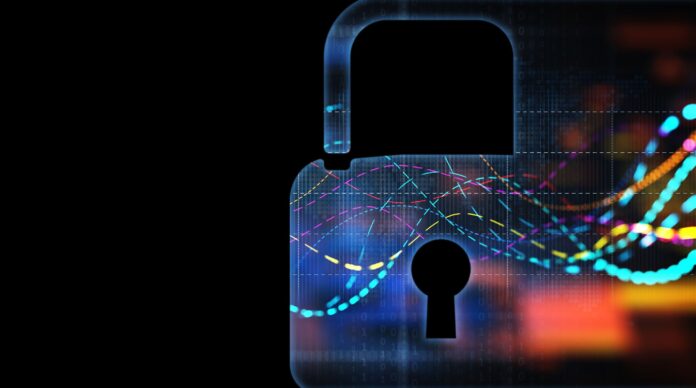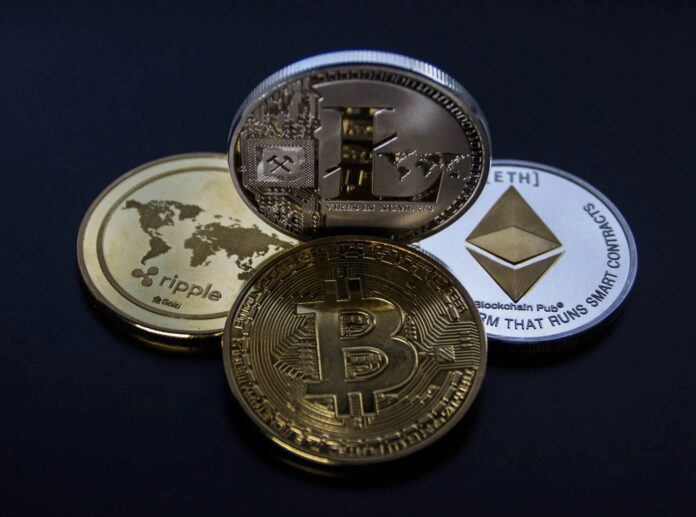Have you ever wished for a better economic system? A system that allows users to be in control of their own funds, protect their data privacy and transact securely on a global scale? Decentralization can help you do just that.
Introduction to Decentralization
Decentralization has become an increasingly powerful concept in the cryptocurrency space and is often considered to be the basis of a new global economy. In its simplest form, decentralization refers to the fact that decision-making and control are dispersed across a wide range of computers, versus centralized decision-making in which a small group or entity holds all of the power.
By leveraging cryptography and distributed ledger technology (DLT), global networks are able to execute cryptographically secure transactions without the need for a central authority.

Crypto trading apps
Decentralization is having a powerful impact on our economy. One area that has been greatly affected is the development of crypto trading apps. Now, anyone with access to a smartphone or desktop can trade in cryptocurrencies without having to physically go to an exchange.
Crypto trading apps have many benefits compared to traditional exchanges such as reduced costs, instant transactions, and improved security protocols. Crypto traders are not subject to banking fees and can easily move their money around without having to wait for days or weeks. The transactions are also settled nearly instantly, which helps reduce market slippage and potential losses due to volatile market movements.
Moreover, users no longer have to worry about their capital being lost overnight due to hacking incidents as crypto trading apps have strong security protocols in place. Their built-in features such as two-factor authentication and cold storage wallets help protect investor funds from unauthorized access or theft. As a result, traders can be more confident when investing in cryptocurrencies through these apps than through exchanges with weaker security measures. If you are interested in trying one out, visit https://bitcoin-evolutionapp.com/

Security of Decentralized Systems
Decentralization is essential to the success of secure crypto networks. By distributing authority across multiple different computers, nodes, and administrators, there is no single point of failure. In a centralized system, like a bank or government institution, if the main server goes down or is hacked, the entire system is vulnerable because all control lies in one place. But with a distributed network like blockchain, there is no single point of vulnerability and users don’t need to trust any one person or entity for their funds to remain safe.
Since all participants in the network have equal access to their funds and equal voting rights when it comes to protocol changes, no one user can take possession of any asset without consent from all others. This prevents malicious actors from taking control of a whole network or altering transactions without consent from other users on the network.
As long as someone has entered the correct credentials into the system prior to the attempted transaction – whether they are trying to send funds or provide a smart contract – that transaction will be approved by consensus protocols and become part of an immutable ledger stored across vast numbers of machines around the world. The strength behind distributed ledger verification rests both in its decentralization and immutability – these technologies provide an unprecedented level of security for protecting digital assets online.

Transparency
Transparency is one of the major benefits of decentralized systems. Because these systems are completely open and accessible to all users, anyone can view the transactions that are occurring within that system. This means that if someone is looking to misuse or manipulate the system, their actions will be quickly identified and rectified. This helps to ensure trustworthiness and accountability among users.
For instance, in a cryptocurrency transaction, it would be virtually impossible for a user to hide their activity from the blockchain ledger, as all transactions are visible and stored on the shared public ledger. This type of visibility helps to keep people honest by eliminating opportunities for fraud or manipulation of any kind. It also allows for greater accountability among participants in projects built on top of decentralized platforms, such as those using smart contracts or other kinds of distributed applications (dApps).

Challenges of Decentralization
Decentralization can come with its own set of challenges in a crypto economy. Without the oversight of a central authority, there is no one to guarantee the safety and accuracy of transactions and data. In addition, due to the sheer quantity of participants spread out geographically, it becomes increasingly difficult to ensure every point is secure by default. This also increases the risk of malicious actors participating in any given blockchain activity, threatening trust among participants.
Apart from security concerns, there are other challenges associated with operating an economic system without a governing body. For example, it may become difficult for verifying transactions or agreements without any underlying rules or laws regarding their specifications and consequences for violations such as fraud or double-spending. In addition, decentralization unhinges traditional value and exchange systems making it hard to determine positive transaction values between participants who don’t share common economic standards or measurements.
Decentralized systems also disproportionately favor larger entities that can pool resources into developing blockchain technology infrastructure as compared to smaller operations that may be unable to compete at such levels.

Conclusion
In conclusion, decentralized systems can offer powerful solutions to some of today’s most pressing issues. Decentralization offers unique advantages over traditional centralized systems. Through its use of blockchain technology and other innovative technologies, decentralized networks enable secure, distributed transactions and greater control over data access.
They offer easier methods for individuals to store and exchange value and also create a more open access structure where companies, government organizations, and even individuals can create applications with economic incentives built into the system. This offers users the ability to transact securely without third-party intermediaries or central points of failure.
Decentralized networks have the potential to revolutionize various aspects of our lives by offering:
- open access to all participants in a network,
- leveraging game theory mechanics to facilitate value exchanges in all types of systems, and
- taking advantage of cryptography in order to provide security tools for sending and storing data.
An ever-evolving technology such as this has immense potential with regard to addressing some of the world’s most pressing issues related to privacy, security, data management and ownership, censorship resistance, and much more.









